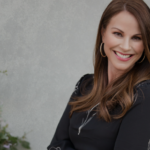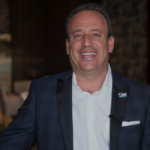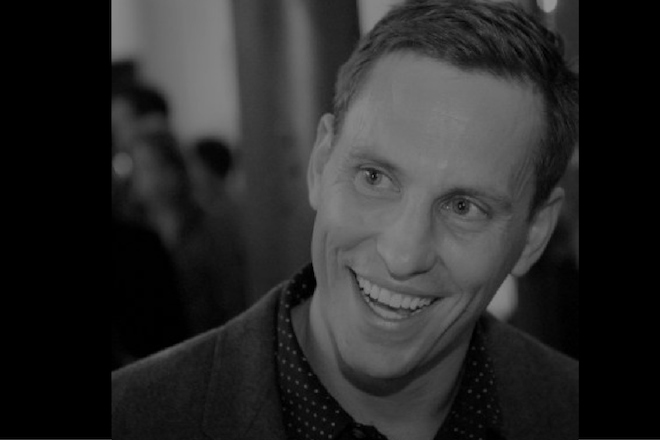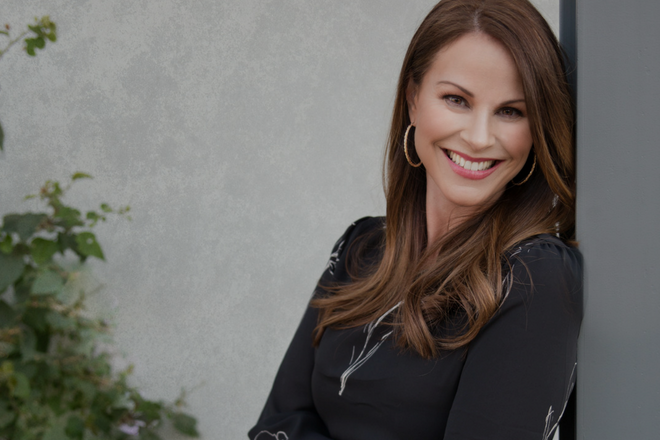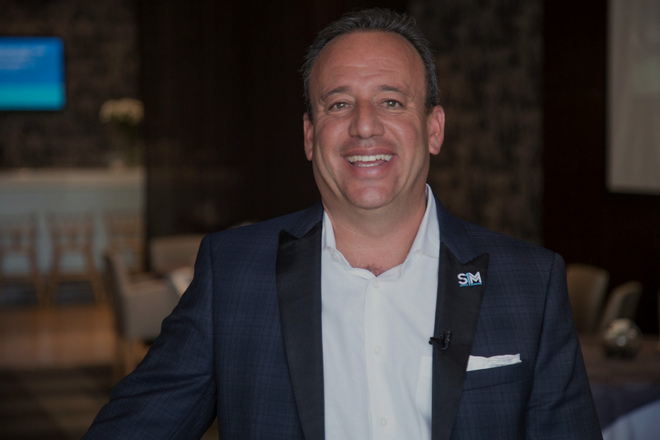“For our brand it’s ultimately that’s us engaging with our consumers. That’s the place where we get that kind of electricity is I’ve always tried to install that within the culture of the businesses I’ve been a part, because it just allows you to move mountains.“
Brendan Synnott – Founder, Bear Naked & PACT | Organic; From Granola to Apparel; Understanding consumer behaviors; Lessons from being on Survivor
Segment 1: (Length :04:00) – General Updates; Introduction to Brendan Synnott and his journey as an entrepreneur; Creating Bear Naked foods and testing it in markets; Understanding your consumers.
Brendan’s finer points:
It's the consumers that are going to be in control of what they consume, because they can no longer hide behind the vial of no transparency between the maker of the product and the consumer of the product.
“I went to college in Nashville, at Vanderbilt. For me, so much of (the concepts of entrepreneurship) started back in college. When I was a freshman in college, Napster blew up, and Napster kind of changed the music industry . . . I was like, all my goodness, like the music industry is going to change forever, I don’t know how, but it’s going to change forever instead of the big companies being in control of what we consume.”
“At the age of twenty-three I kind of saw the food industry, and you’d walk down a cereal isle and you’d see cartoon characters on the front of boxes with no explanation of where the product was made, why it was made, how it’s going to impact my body, it was all kind of like smoke and mirrors, and cartoon characters.”
“I just felt that and it just didn’t seem right as a consumer.”
We built Bear Naked with the idea of kind of bringing transparency into a food product. We started out with granola, and we basically made granola the same way people made granola a hundred years ago. Not processing it.
“Making it from ingredients that were found in your house that you could pronounce and understand, these really kind of basic concepts, it just made sense to me as a consumer, then we built the whole business around it.”
“Ultimately, to go try to change the food industry in the same way that we’re kind of trying to change the apparel industry, today.”
“I ran into a girl I went to high school with named, Kelly and she was making the granola and selling it. Selling it, basically at a farmers market. I was like, oh,’ I’ll help you start making it. I’ll help you start baking it. Let me help you go sell it in a couple places.'”
“Ultimately, I was suppose to take the product and go, what made sense to me was just kind of take it into the store and give it out to people, let them taste it, and you get their feedback about how they eat their products. What they ate previously? When did they eat their breakfast? Just all these kind of how does the consumer use this category.”
“Pretty much what we found out is people wanted ingredients they could understand. Consumers are relatively selfish in terms of what they’re willing to give up. They always want things like flavor. They always want things like quality, and fit, and feel. The things along those lines. “
The taste of our product was actually awesome, and it tasted better than a traditional granola, and that was really the reason somebody bought it in the first place. Then they stayed loyal to us once they learned how we made it, and learned why we made it, and the process that we went through to go make the product.
“Ultimately, the first trigger was just getting the product into peoples mouths and being like, I like this better than the other product that is out there.”
“I think, I put first and foremost, listening to consumers, and talking to them, and engaging with them. At Bear Naked, I did that through literally doing two hundred and fifty store demos in the first year of the company’s life. I was just like literally sitting in the store.”
“I don’t think that they (customers) know what they want, typically, they don’t understand how to describe to you what the commercial opportunity that they would like to engage with is in front of them.”
“They can talk very deeply about their existing beliefs and their value system, then to me, trying to kind of build around that value system, and understand where their value system is not being met with what they consume. Building around that interaction.”
Segment 2: (Length :08:00) – Talking with Brendan Synnott; Being authentic; Bringing new ventures to market; Understanding consumption & consumers behavior; From food to clothing.
Brendan’s finer points:
“Just build it and learn, build it and learn. I think that is so right. That is how I built my companies.”
“Start there. In order to go there, you cannot go spend a lot of money on research. What I found is just get it out there, get it exposed, get it executed, and then just continually make it better.”
The plan never works. It's really just about building towards a larger vision with the best group of people that you can and make them comfortable with failure.
“Just continually make it better, it’s never done. It’s never right.”
“Just own it. It’s okay. Nobody is perfect. Nobody’s mom is perfect. Nobody’s kids are perfect. Nobody’s wife is perfect. Hopefully my wife didn’t hear that, I love her to death. (laughter)”
“A lot of the larger, more established, older companies have a difficult time taking accountability because it’s just a lot more complex at that size. They can’t just make things happen fast without knowing if they can control the mistakes.”
“It’s definitely something that I advocate for in young brands, it’s like don’t hide from anything, own it all. You don’t need to fix it all today, just make sure you own it, and acknowledge it, and let them know your view on it.”
Build the brand right, build the product right, and you build a distribution strategy right. Those three things should actually go market your brand for you without actually a lot of spending on marketing.
“That was kind of like the Bear Naked example. It was my most successful business, but we were really unique across all those attributes, whereas I own a pet food business, now, and the pet food business is really unique on brand, and really unique on distribution strategy, but kind of unique on product. It is hurting it’s ability to grow.”
“When I think about it, ultimately, if you are selling a consumable or a product, or some sort of tangible hard good, you shouldn’t need to necessarily go market it. Don’t think about how you’re going to go market it, first, go think about how you built a brand the right way, the product the right way, and the distribution the right way . . .”
“. . . that should feel really easy, and frictionless, and you should get a lot of traction there, and if you don’t get a lot of traction there, before you start spending money to kind of adding gas to the fire, then you probably have built something wrong, and you probably soon be marketing it and failing it.”
In today's universe, capital is so cheap. When I started Bear Naked fifteen years ago, nobody wanted to invest in natural food businesses. There wasn't even a concept, now there's been close to a billion dollars of private equity money trying to invest in the next great granola company.
“What was really interesting to me, particularly was okay, people care about food, because it’s intimate. They consume it. They have a consistent relationship. Granola you eat almost everyday. Pet foods you feed to your dog everyday. I was in the yogurt business, yogurt you consume, so people have, when consumers have a consistent relationship with consumption they’re willing to go deeper with it, in terms of what the consumption actually means. Those are always the product category I focused on.”
“I started to think about this with apparel, and apparel, clothes, or particularly underwear is an agricultural product, just like food.”
“It’s something that you put on your body, the first thing when you wake, and it’s the last thing you take off. Underwear, socks, these are basics, they are on you pretty much twenty-four-seven. To me, what was the idea was like okay, wait, everybody is asking where their food comes from, and it’s basically changed an entire industry, just with that simple question, and so when people start asking where does this shirt on my back actually come from?”
Segment 3: (Length :10:00) – Innovation by design with PACT; Seeing a shift in direct to consumer models; Lessons from being on Survivor
Brendan’s finer points:
“What the idea around Pact is the apparel industry generally is responsible for twenty percent of the worlds water pollution. According to the World Bank, everybody knows the factory and the push, and the sweatshop concept of who’s actually making this product? What kind of conditions are they making it in?”
“You look about how much you know about your closet verses how much you know about your refrigerator or how much you know about your pantry. The idea was how do we make people think about their closet in the same way they think about their pantry or they’re refrigerator, in terms of caring about what they are consuming and putting on their body and bringing into their home on a daily basis.”
There's a number of issues within apparel and nobody knows anything about apparel.
“The idea was then to go build an underwear business, initially, just because again it’s something that is on people day in and day out, and have the faith that stuff would be organic, because of what the impact of the planet is, or the positive impact of the planet with the organic farming verses the conventional farming.”
“As well as, the certification throughout the entire supply chain, that we can insure that there is no child labor, that people are paid the right wages, that the people are treated fairly, and just bringing kind of more certification, and transparency, and accountability into a product that is a large industry, and that impacts every person on the planet.”
“My experience has been building wholesale businesses. I go sell a product to the Kroger grocery stores, and I put it in to their warehouse, and then they put it on to their shelves and sell it. Obviously there’s a bunch of middle men associated with that.”
I think it's the most interesting thing when you talk about not only the authenticity of the brand story, in terms of connecting direct.
“You see the models with, the Dollar Shave Club, or the Honest Description Model, or Harry’s, with all these different kind of direct to consumer models where they’re not only providing a great product, and a great story, and a great connection, with really cheap distribution costs they’re also providing you value, because selling direct to consumer just takes out all the fat.”
“Firstly, you have to be honest with yourself. Sometimes people see what they want to see, as opposed to what’s actually going on. When you talk about analyzing markets, you have to be quantitative about it, and you have to really understand what’s going on. Dig deep, do real due diligence into where there is a niche, and if you find a niche then you have to try it.”
I think that factor right there is going to dismantle a lot of retail. You are already starting to see it, you saw what happened with Best Buy. You are starting to see it happen with department stores. It's just going to continue to dramatically impact the traditional offline universe for retailers.
“I never watched Survivor. I sold my first company, I was taking a year off in Colorado . . . I got recruited to go do it, they were like we need a thirty year old guy, from the first phone call I got from them, to actually kind of doing the test out for the show, I was in Brazil, five weeks later.”
“Purely, doing it, because I have a ton of respect for television. I worked at Saturday Night Live, and seeing how that place ran, culturally, taught me a lot about business, in terms of it’s been an institution for thirty-five years, and getting three hundred people to work a s live show on a weekly basis is just like magic.”
“Just being a part of that, I’ve always tried to be a part of experiences like that. When I went to Survivor, I was like these people invented reality TV, sure, I’ll go check it out.”
I went much more for the experience, in terms of a business lesson that ultimately played out. I got blindsided about two-thirds of the way through the show, and I had two immunity idols, and I had all these alliances. I was like, I've got this game cooked. I got this.
“Then, out of nowhere, because pretty much everybody around me was, yeah, yeah, Brendan that’s a good plan, yeah, we’ll do that, yeah. Everybody was saying, yes. As soon as everybody started saying yes to me and it got to easy, I got kicked out of the show, and I kind of feel that’s true in entrepreneurship and business building. As soon as you think you know everything, you might as well quit. You’re dead.”
Segment 4: (Length :04:00) – His first experiences on Saturday Night Live (SNL); Forcing industries to change.
Brendan’s Finer Points:
“Yeah. When I started at Saturday Night Live, I was twenty-two years old.”
A lot of people don't know this about Saturday Night Live, one of the cool things, it's not like the guest just shows up there on Saturday and does a show. They come in Monday, and there is six days of preparation of full days of preparation in order to make sure that the show goes off in the right way.
“My job was to basically this. Gwyneth Paltrow would come in and host, then I would be her wrangler, or her handler from the Monday she came in to the actual time when the show went on, on Saturday.”
“Whether it’s writing the show, making sure that the people that are doing the makeup, and doing the scenes fast enough. There is just a massive amount of coordination.”
For me, I was twenty-two there, I didn't know anything about business. It was really just about feeling culturally, the feel from the time that the host came in on Monday to the time that the show went off Saturday.
“I’ll never forget kind of walking in there Saturday at 11am in the morning, because they would be rehearsing for twelve hours, prior to them doing the show late that Saturday night. The band would be warming up. Just the energy of about to pull off a live production, after everybody is killing themselves for the last six days, and this was show time on Saturday was just.”
“It’s an electricity that runs through your veins. I’ve always in a sense tried to recreate in my businesses, we’ll never be on live TV doing everything, but in terms of just the pride and the hard work. The electricity of the output.”
For our brand it's ultimately that's us engaging with our consumers. That's the place where we get that kind of electricity is I've always tried to install that within the culture of the businesses I've been a part, because it just allows you to move mountains.
“Yes, I’ve had financial gain, and that’s been awesome, but for me, it’s always been the game of and my own journey of doing what I think is right for consumers; to advocate for them. In the midst of that kind of reshape industries, or reshape categories way.”
“When I thought about Bear Naked, I will never forget when I started it. I was twenty-three, we were just kind of hustling in the beginning, we didn’t pay ourselves for the first two years. We moved back in with our parents. We put everything on credit card debt, and we took a company form zero to fifty million dollars in five years.”
“Literally just hustling, hustling, hustling. Ultimately, the idea was not about the fifty million dollars to getting it to that level, the idea was about let’s go build something that forces Kellogg’s to change.”
“Let’s go build something that forces these bigger companies to change across the industry. That was always in the back of my mind. When I say not conform and lead by example, it’s just really about this idea of pushing forward and do what you feel is right, and then if you do what is right, and ultimately they always think about also who are you going to go hurt, like Kellogg’s is not going to go change, unless I go hurt them.”
That kind of leadership, to me ultimately is about category leadership and if you can go lead within categories, I think you can go reshape industries. You don't have to go leading categories like conforming to the way they do it, currently. There's other ways you can go do it. That's the brilliance of the game we all play.
Segment 5: (Length :03:00) – Hustler Thought of the Day:
We invest in unique businesses that lead by example, teams that are worth believing in, brands that achieve without conforming. - Brendan Synnott
GENERAL NOTES:
Brendan Synnott – Founder of Bear Naked & PACT | Organic
- Brendan Synnott is leading his team to change the apparel industry for good with his company PACT. PACT ORGANIC unites the collective vision of organic cotton farming, responsible manufacturing, sustainable and ethical certifications, and values-based shopping. We believe organic cotton is the foundation for addressing labor and environmental challenges that surround clothing.
- He has built multiple lifestyle brands from scratch. His work has produced a unique signature across product categories that align with the millennial generation’s evolved relationship with consumption.
- In 2002, at the age of 23, Synnott co-founded the healthy snack company Bear Naked, which was later acquired by Kellogg for over $80 million.
- In 2009, he founded Revelry Brands as a vehicle to provide strategy, people and capital to new ventures. Currently, Revelry holdings include the pet care brand I and Love and You, candy brand Little Secrets, and PACT | ORGANIC.
- With a degree in economics from Vanderbilt University, Synnott has levied his strengths to not only follow his passions, but tap into his competitive and energetic nature, which has included a stint as a cast member on CBS’s Emmy-winning TV series Survivor.
- Check him out at http://wearpact.com | PACT Instagram | Twitter | Facebook
###
